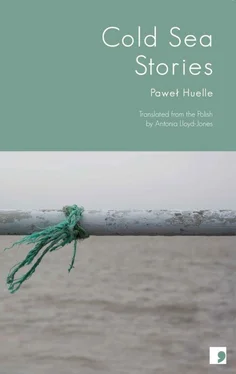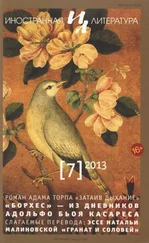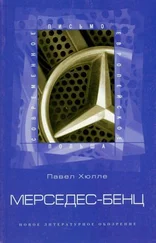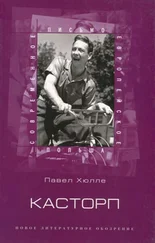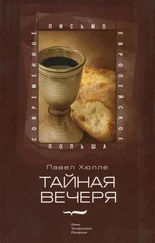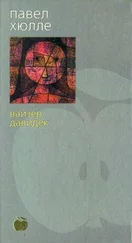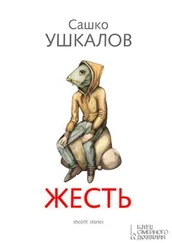At home he did not open the computer until after supper. Sabina had written to inform him of her daughter’s death. Now that she would have to take care of her grandsons, she could not even dream of coming. ‘I hope,’ she wrote, ‘at least you are able to be happy. Apparently only two or three moments in life determine that, the ones that give light. The rest is meaningless.’ He closed his mailbox. He didn’t like such categorical statements. Before sleep Joanna asked him why he had come back from the school reunion early. After a short silence he replied that a gay rally was being held at the boarding house and a row had erupted over the reservation, as a result of which they had decided to cut their stay short. As he was falling asleep, he thought he could see Pastor van der Ecke finding some soggy pages of the Bible on the seashore, putting on his glasses, reading a few verses in the language of his forefathers and bursting into loud, ever louder laughter, which neither the wind nor the roar of the sea could stifle.
Afterword: An Interview with Paweł Huelle by Antonia Lloyd-Jones
ALJ: Although each one is independent, the Cold Sea Stories have some common themes and a shared atmosphere. What inspired you to write them, and how intentional are the echoes that resound through the collection?
PH: I wrote them around the age of fifty, in the realisation that I am a man of the Baltic – all the stories are set in my own native region, Gdańsk and the surrounding coast, except for ‘Öland’ which is set on a Swedish island, but still in the Baltic Sea. And that means I belong to the culture of the north, which is sad, melancholy, nostalgic, bleak; there is not much light – hence several of my characters search for the light, and ultimately disappear into it. This is the culture of herrings, potatoes and vodka, not wine, and this is the place that has shaped me, like it or not.
This collection of stories is a sort of synthesis of my life here, and they feature some of my obsessions, such as the cyclical nature of time, and where life starts and ends. And the significance of great books as an authority in human life, from religious books including the Bible – which has such meaning for the Mennonites in ‘Mimesis’; mystical, ideal books that may never actually have existed – such as the Book of Light brought by the mysterious stranger in ‘Öland’; or the toy shop catalogue that was so immensely significant for the hero of ‘Franz Carl Weber’ in his childhood.
ALJ: ‘Mimesis’ is an example of how stories fill a gap in the history of your region. Who exactly were the Mennonites?
PH: They were a religious minority who were forced to escape the Netherlands when the Spanish Catholics persecuted them in the sixteenth century. They came to Poland because it was a very tolerant country in the days of King Sigismund August Jagiełło, who gave them land on the Vistula delta. Many of them also settled in Russia, but left after 1917 when their farms were expropriated by the communists, and then moved to Poland - in the story, the elder Harmensoon mentions the Russian villages they have been forced to leave. They were very good entrepreneurs, and also experts at reclaiming the land from the sea, creating polders and so on. Not all the Dutch who came to this area were Mennonites, but many of them were. When fanatical Catholics asked the king why he tolerated advocates of other religions, he said: ‘I cannot and will not be the king of your consciences.’
Mennonite culture was destroyed by the Germans in the Second World War and finished off by the communists. According to their faith, the Mennonites were not allowed to make oaths to anyone, so the orthodox ones who were pacifists and refused to join any army were sent to labour camps and murdered. Some of them did join the army as medical auxiliaries. In the communist era the only survivors went west with the Germans who left what is now western Poland. Since first reading about the Mennonites, and since seeing the film Witness , which is about the Amish people in America, whose origins are the same – I have wondered how these people’s way of life was possible. Could you really live outside the mainstream of society, and create a utopian, noble existence? It can’t really work, but its history is interesting, and it is inspiring to me that they lived near here. They are People of the Book, like Orthodox Jews or Muslims.
There are several villages that they left behind, some entirely abandoned. It is a dramatic sight to walk along a village street where there are as many as twenty houses that have been empty for more than fifty years. You hear ghosts there, voices from the past, and that was my inspiration for the story.
ALJ: How much of your own biography is concealed in the stories? I know that as a student you were involved with Solidarity, but to what extent is ‘The Bicycle Express’ autobiographical?
PH: ‘The Bicycle Express’ is almost entirely autobiographical. It describes my part in the revolution of 1980, when there was a general strike. I really did have a heavy, ‘armoured’ Ukraina bicycle, made in the Soviet Union. There was no public transport, so bikes were selling like hot cakes, and I got the last one in the shop. Then for two weeks I rode around with my friend Andrzej, who had a racing bike, delivering anti-communist Solidarity leaflets. We would collect them from the shipyard gates each evening - more than ten thousand leaflets - and then tour all the factories in the entire Tri-City of Gdańsk, Gdynia and Sopot, distributing them.
August 1980 was the first Polish rebellion against the communist regime, when Solidarity came into being. The atmosphere was euphoric, because it was the beginning of the end of communism. That summer was my first experience of revolutionary activity; I was only about twenty, and it was a fabulous feeling that I remember well. The clamp down came in December 1981, when martial law was imposed, and was followed by the dismal 1980s. But nothing could ever be the same again.
Although I have changed Lucjan’s real name, his story is true too. He was my father’s cousin, who came back from the Gulag in 1957, when everyone thought he had died at Katyń(where the Soviets massacred tens of thousands of Polish officers and intelligentsia) after being arrested by the Soviets in Wilno (then in Poland, but now Vilnius, in Lithuania) in 1939. It’s true that on his return he saw me as a baby, and was pleased to find that in spite of what had happened to him, life in Poland was carrying on. He was never willing to tell us any of the details of his fate in the Soviet Gulag, but he spent eighteen years in Magadan and other Siberian prison camps. Before the war he had worked as a translator for the Ministry of Affairs – he was a genius who knew eighteen languages perfectly. But the only way to survive the forced labour, felling trees in the Siberian forest on an inadequate diet, was to drink spirits, and it turned him into an alcoholic. After he came back he went blind, and read books in Braille. He was extremely erudite, a great and sensitive person.
ALJ: Is the story of the burning pirate ship in ‘Depka and Rzepka’ your invention, or is that a real legend?
PH: I first heard that story from my father when I was about five years old. My father was a ship mechanic, and he really did repair small fishing boats – he heard it from the locals, so it does come from traditional Kashubian folklore. I’m fascinated by the Kashubians – they are the people who have always lived in this part of the world, throughout history, regardless of which other nations took control of it or fought over it. The Poles, Germans, Russians, Dutch and French have all had an influence on Gdańsk and the region, and as the Free City of Danzig it was an international place, but through all these historical eras the ethnic locals have always been the Kashubians.
Читать дальше
